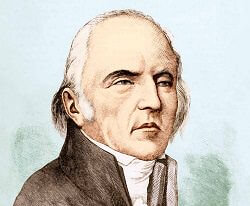 Different scientists have tried to explain the process of organic evolution. So they have given different theories for the Evolution of organisms. Out of them the names of three scientists are important Carlos Linnaeus, Jean Baptist de Lamarck and Charles Darwin but we shall discuss the two important theories of evolution which are put forward by Lamarck and Darwin.
Different scientists have tried to explain the process of organic evolution. So they have given different theories for the Evolution of organisms. Out of them the names of three scientists are important Carlos Linnaeus, Jean Baptist de Lamarck and Charles Darwin but we shall discuss the two important theories of evolution which are put forward by Lamarck and Darwin.
Lamarck’s Theory of Evolution or Lamarckism
This theory was given by a famous biologist Jean Baptist de Lamarck in 1744, in his book ‘Philosphie Zoologique’.
The main postulates of Lamarck’s theory of evolution are:
1. Effect of the environment
The change in the environment creates new needs in organisms, which results in change of habits of organisms. The new habits involve more use of certain organs of the body and on the other hand less use of other body organs.
2. Use and disuse of organs
The use and disuse of organs by an organism leads to acquisition of new characteristics.
3. Inheritance of acquired characters
The characters acquired by an individual are then transmitted by heredity to the next generation. In this way, in every generation new characters get accumulated and after a number of generations, a new species with modified characters is formed.
Criticism
Lamarck’s theory of evolution was very strongly criticized by another biologist, August Weismann; he showed that even after cutting the tails of rats continuously for 21 generations, a tailless rat was never born.
Test Your Understanding and Answer These Questions:
- Explain Lamarck’s theory of evolution.
- Give criticism of Lamarck’s theory of evolution.
- Name the book in which Lamarck wrote his theory of evolution.
